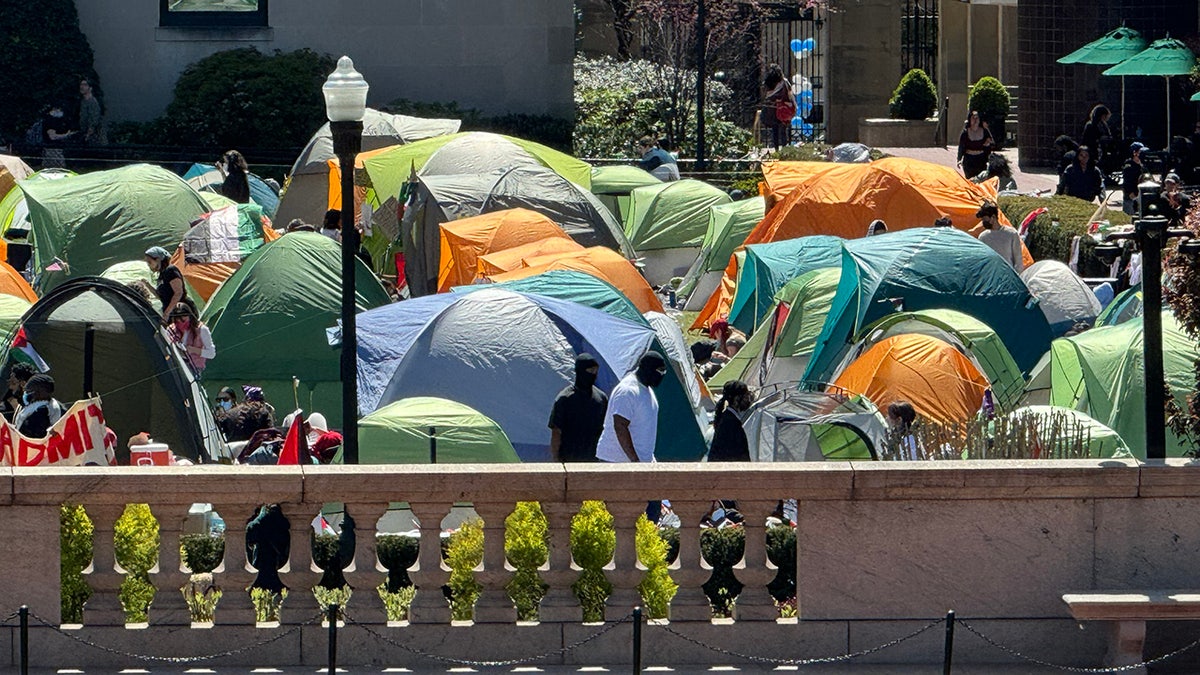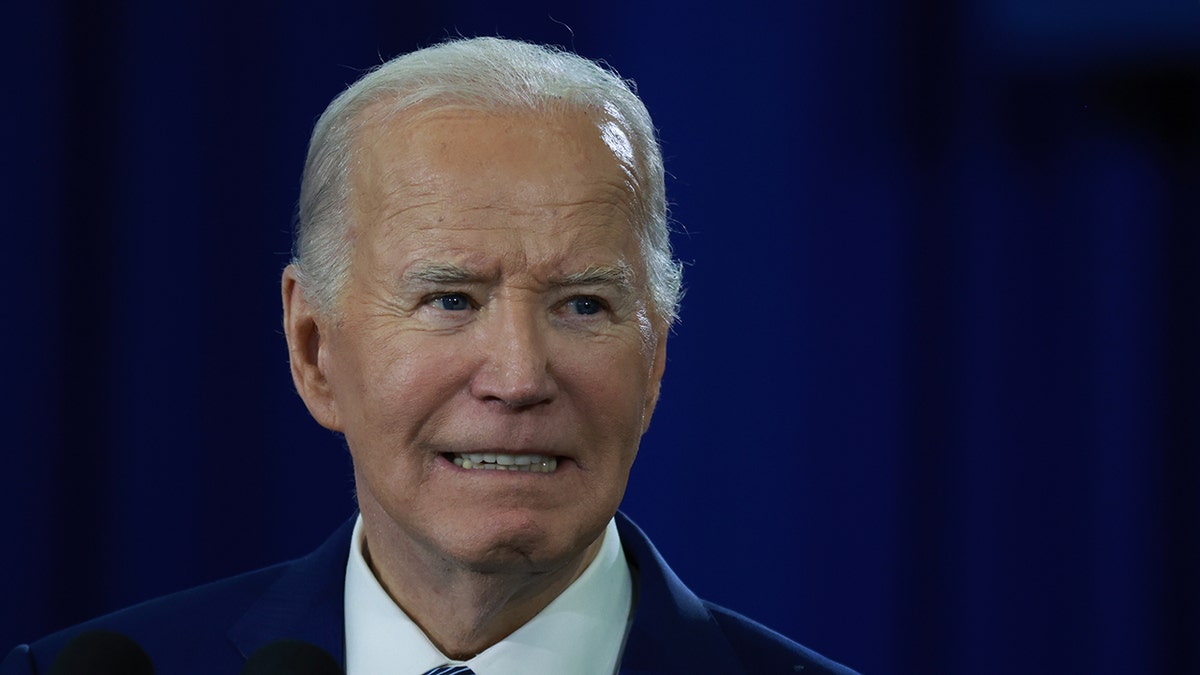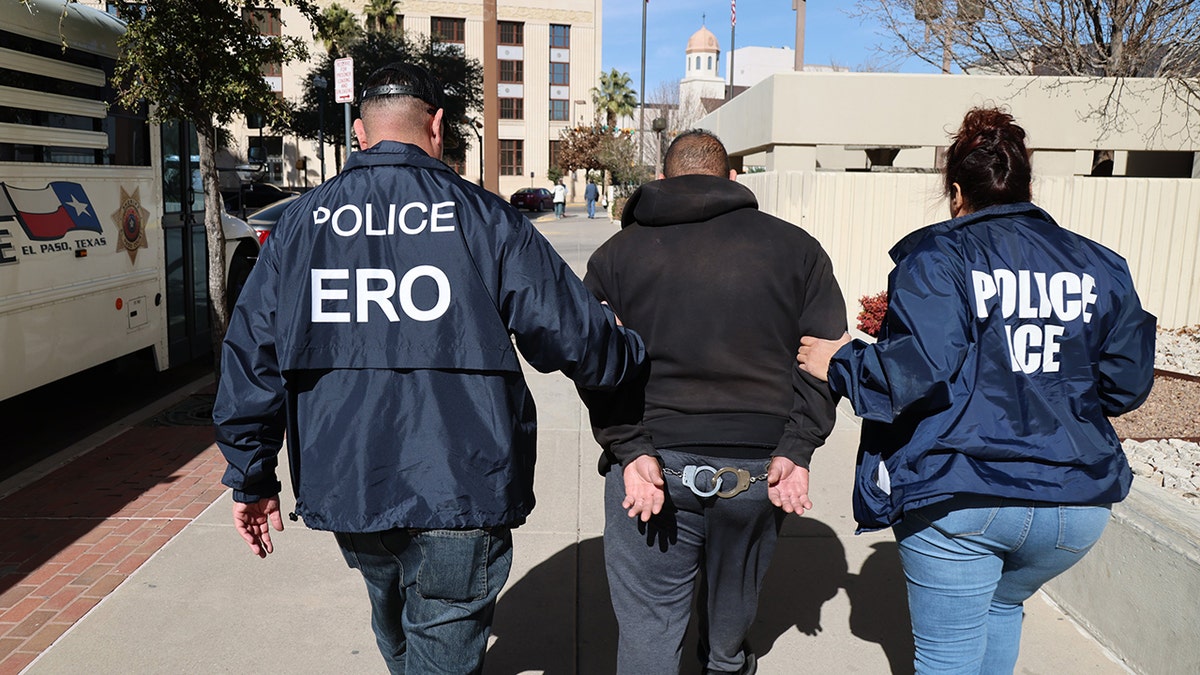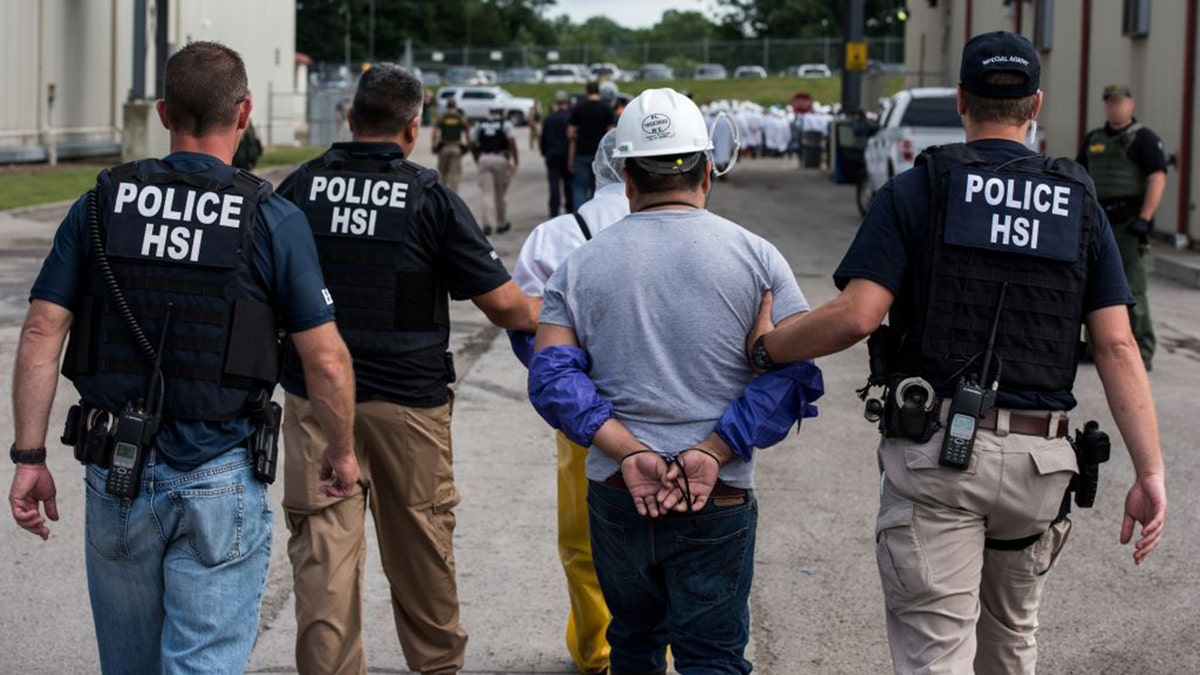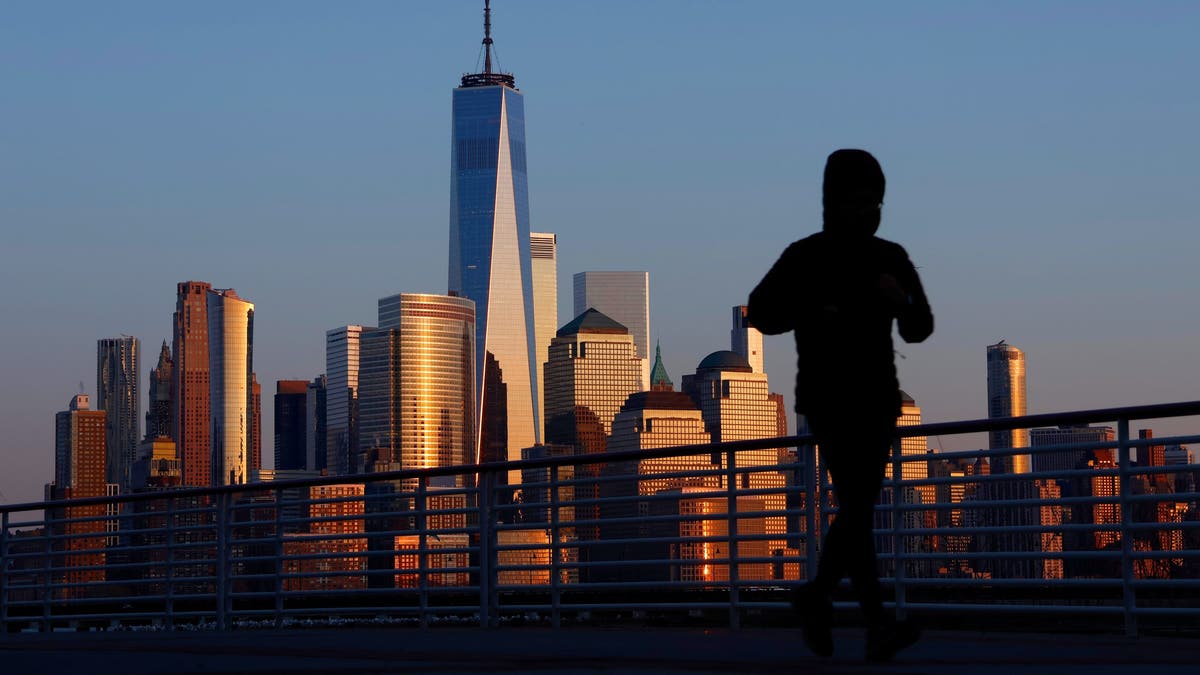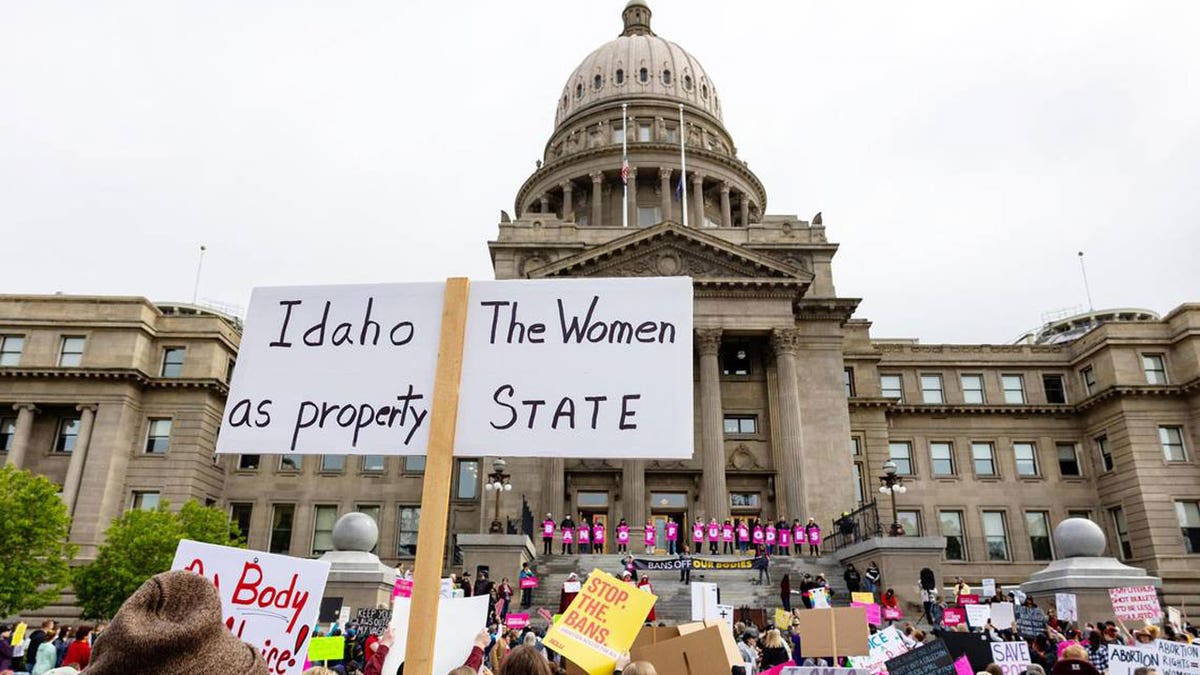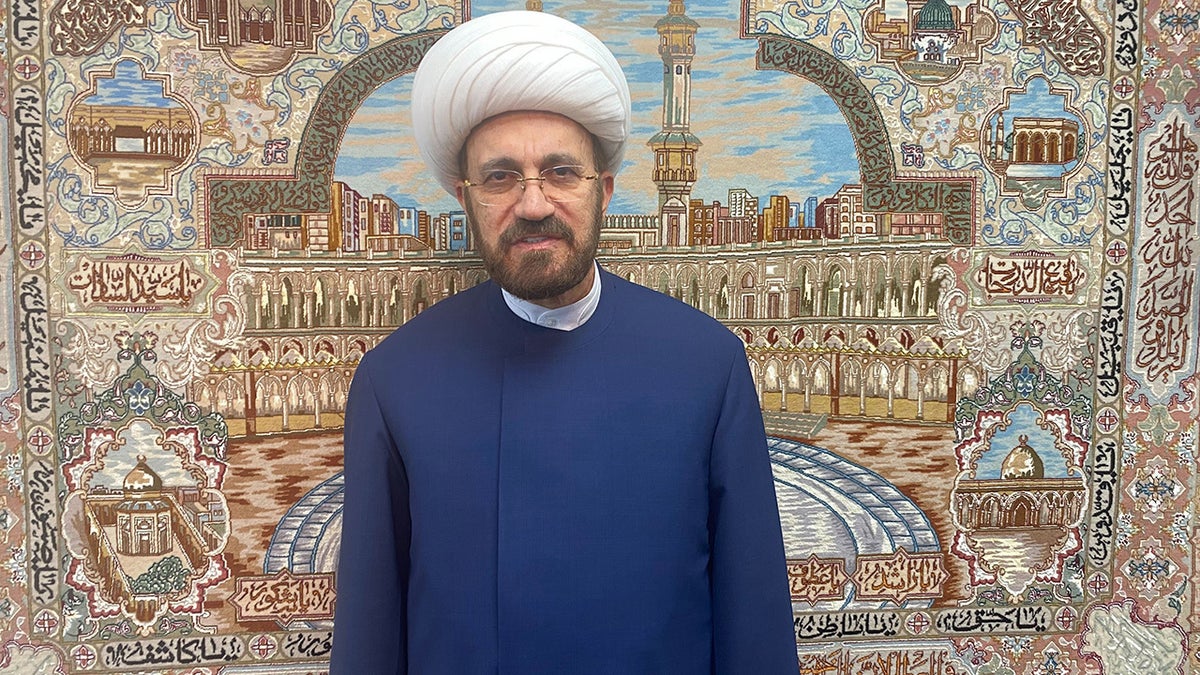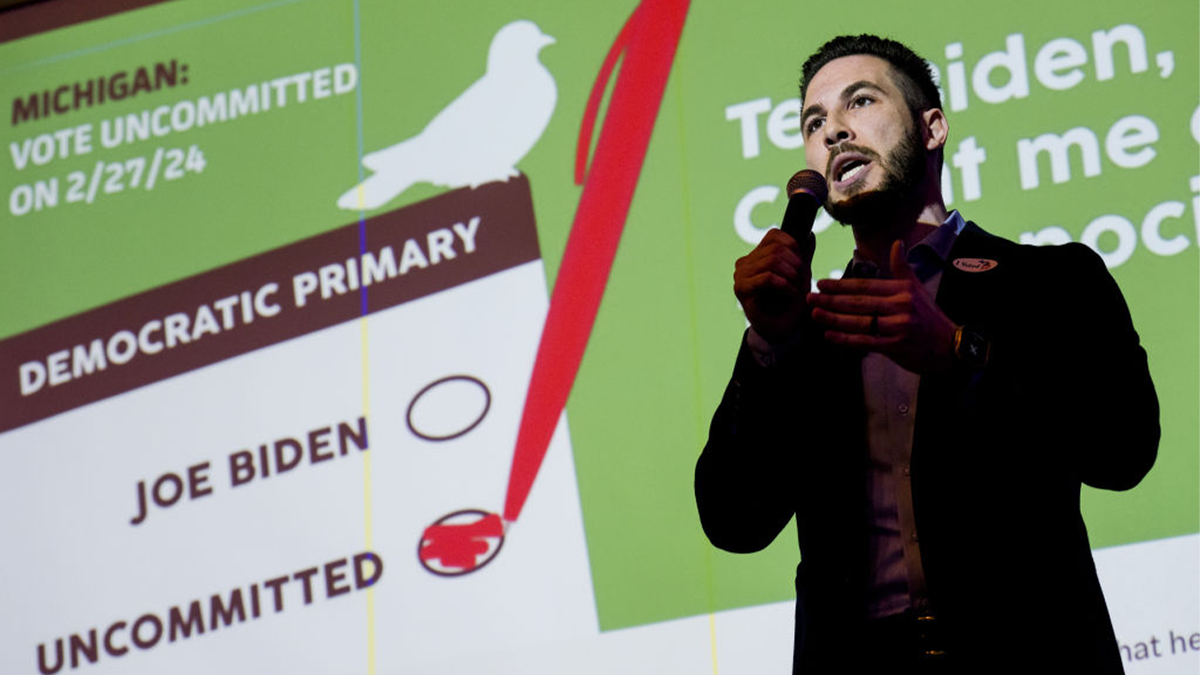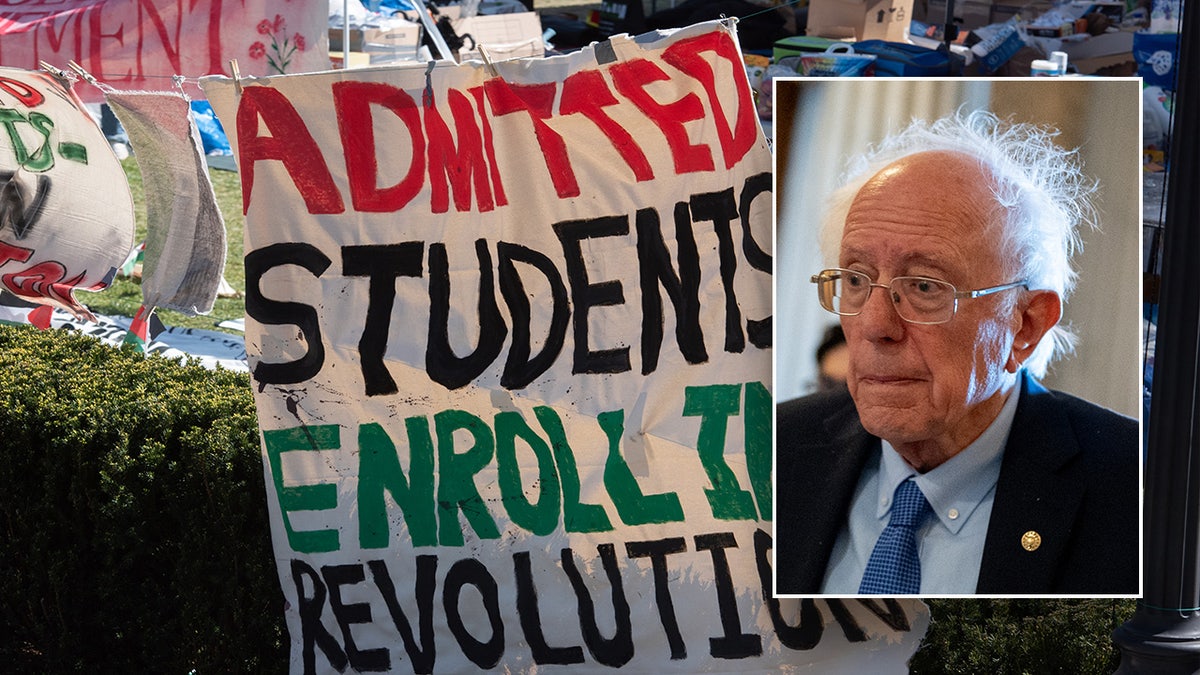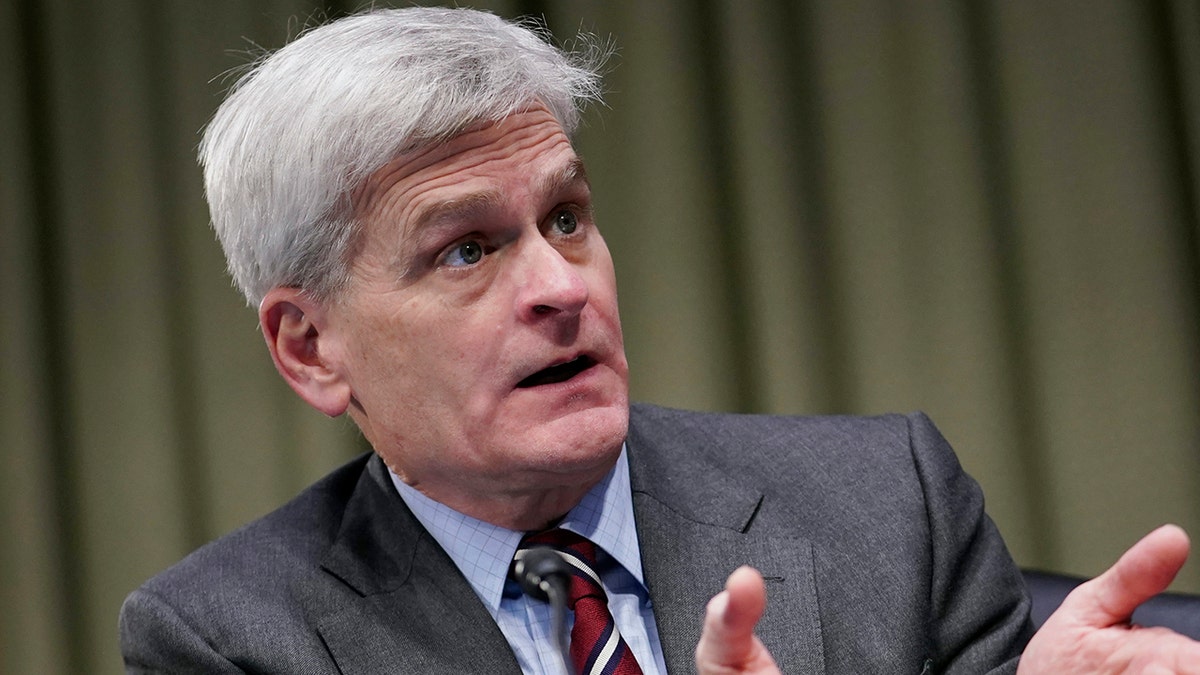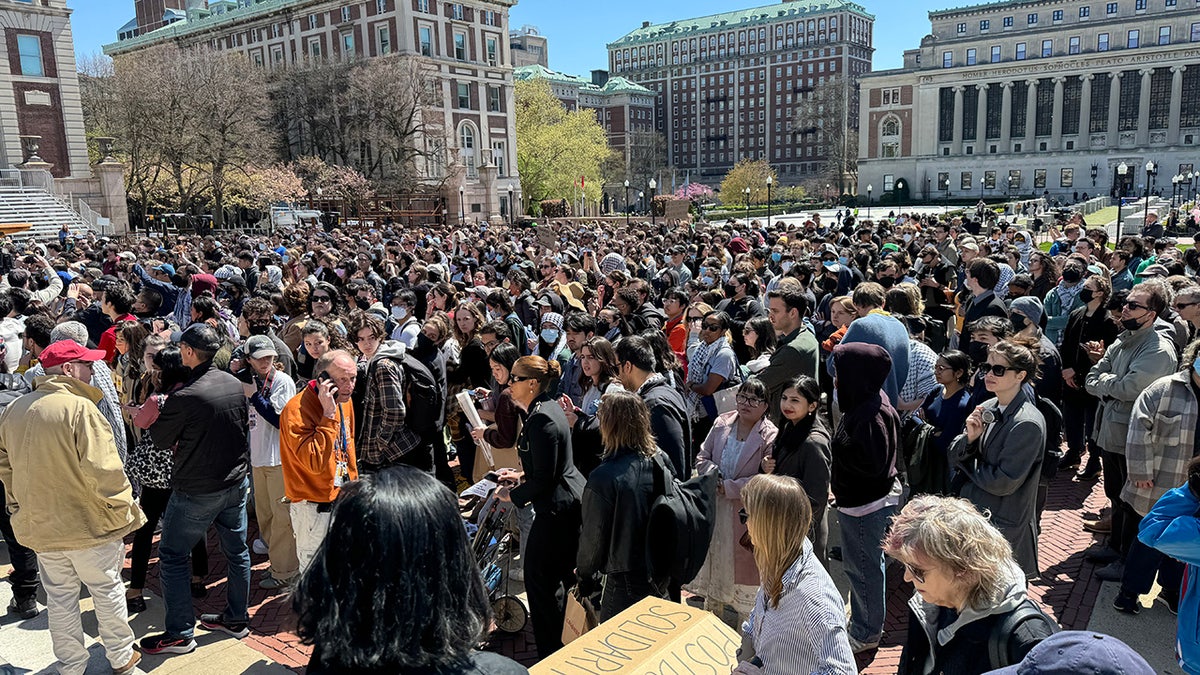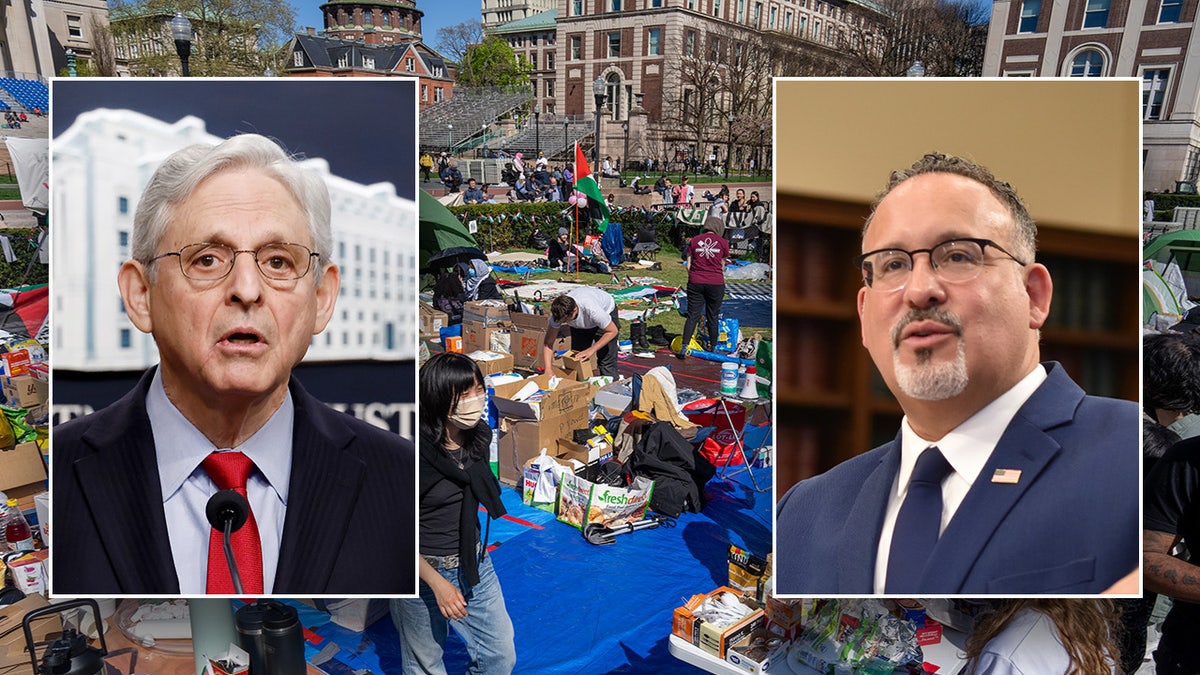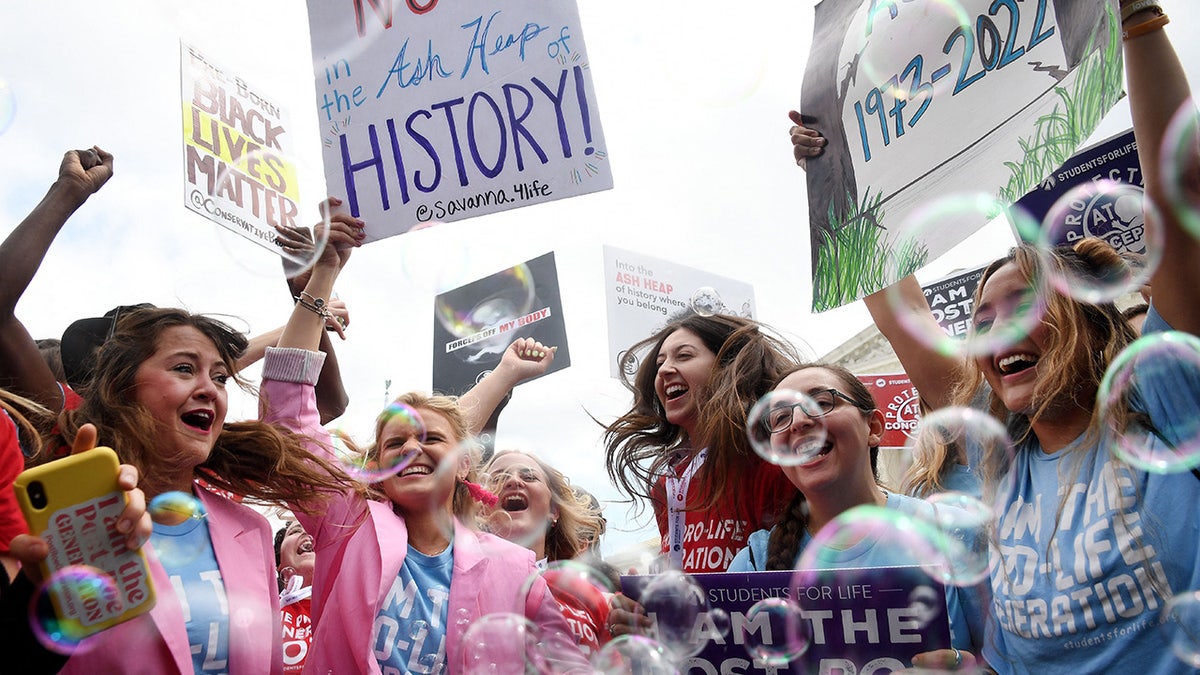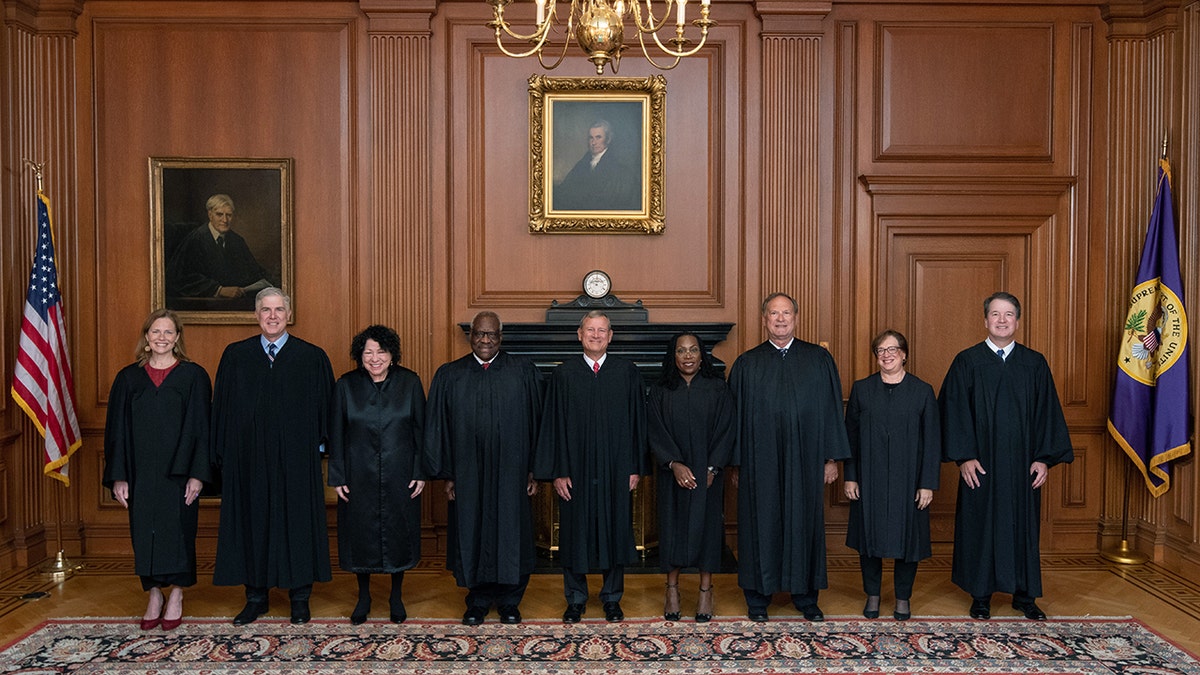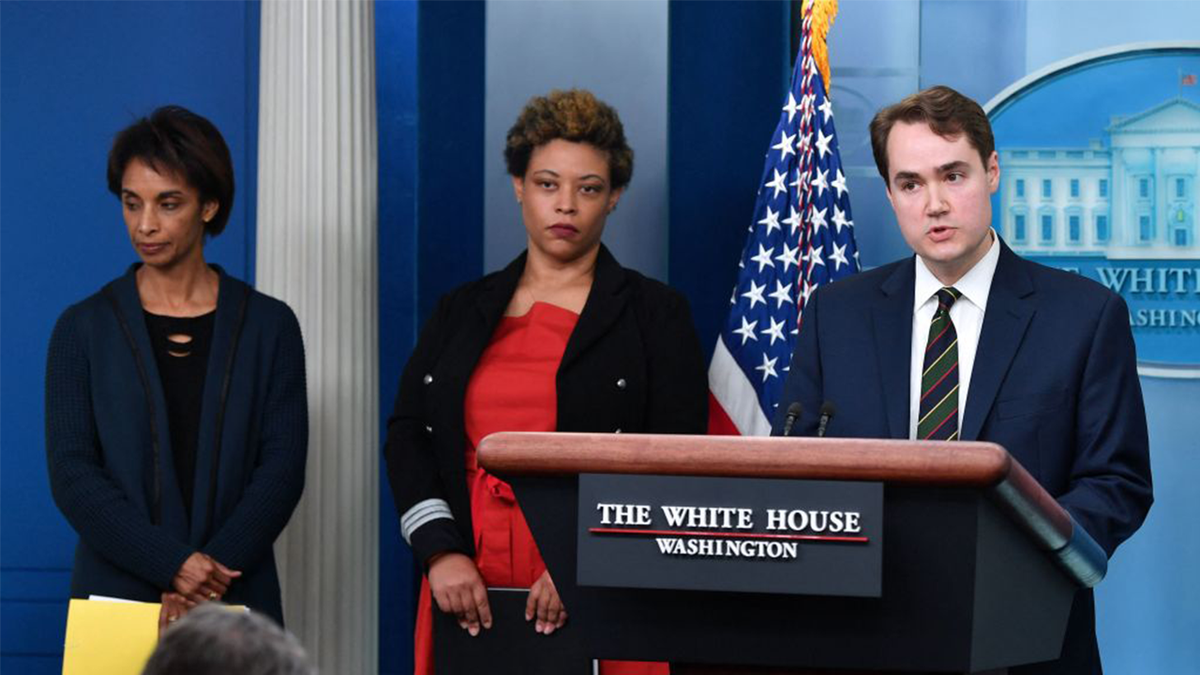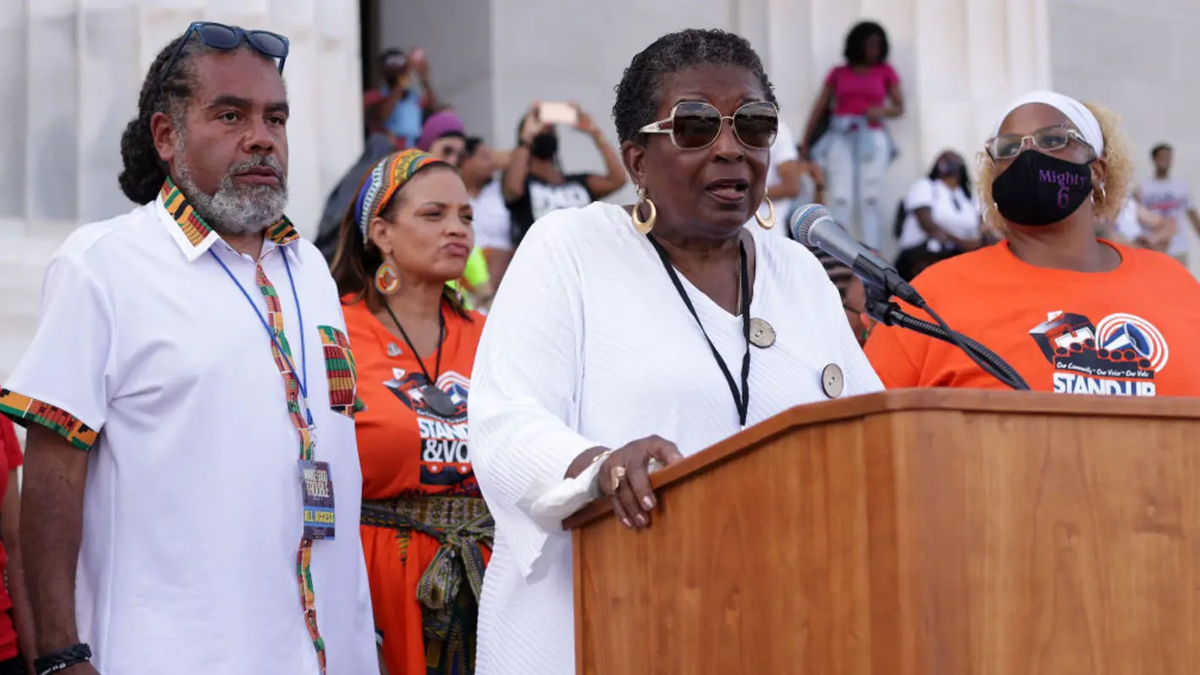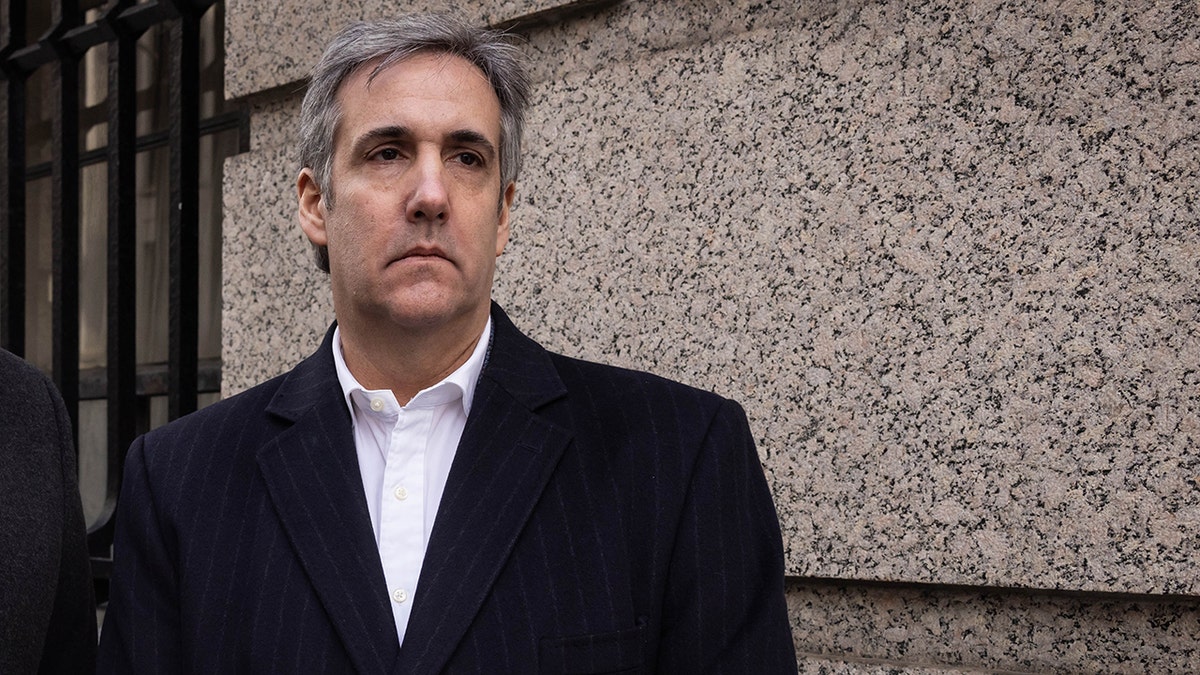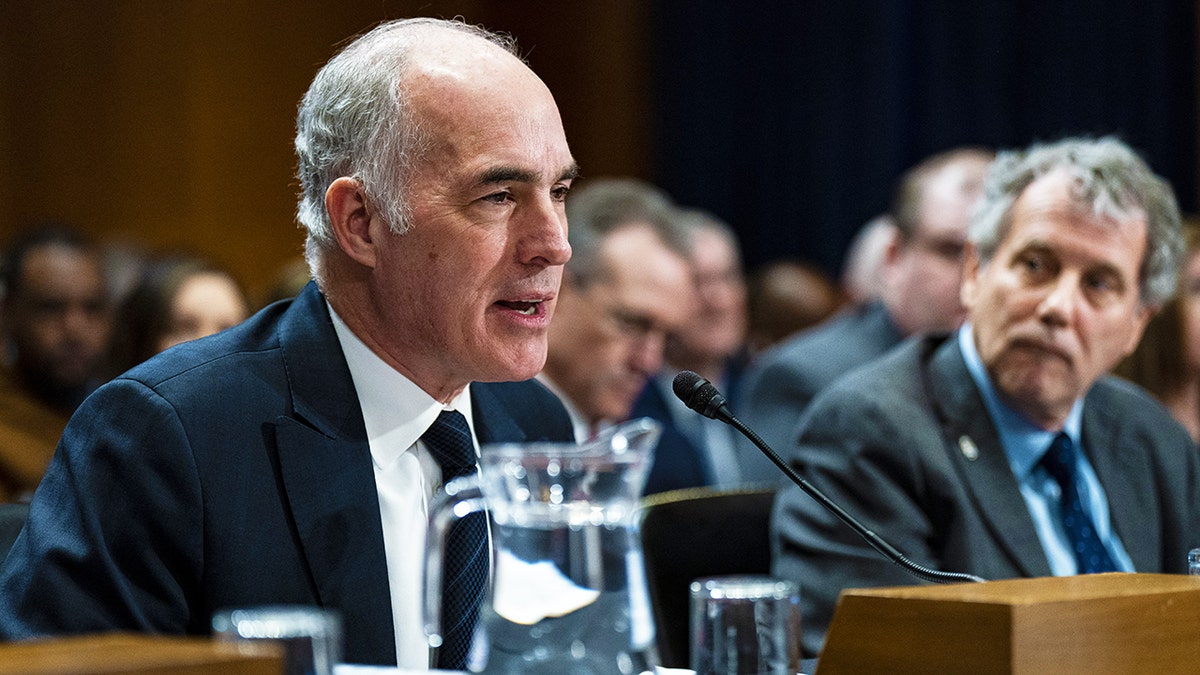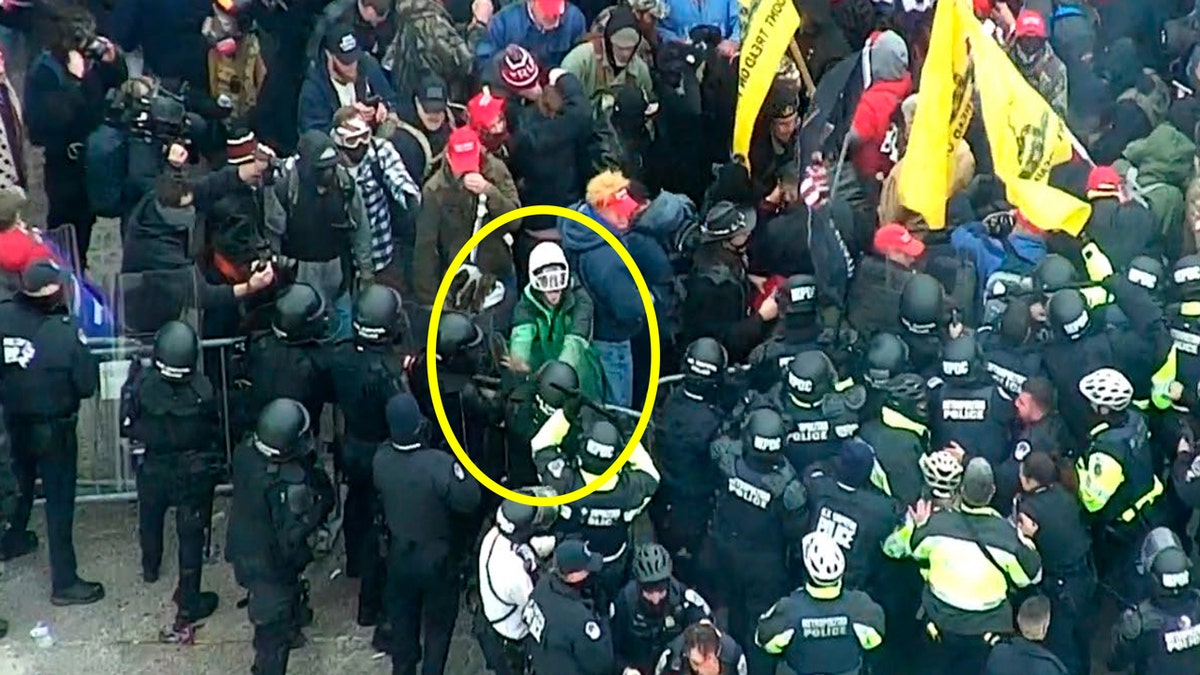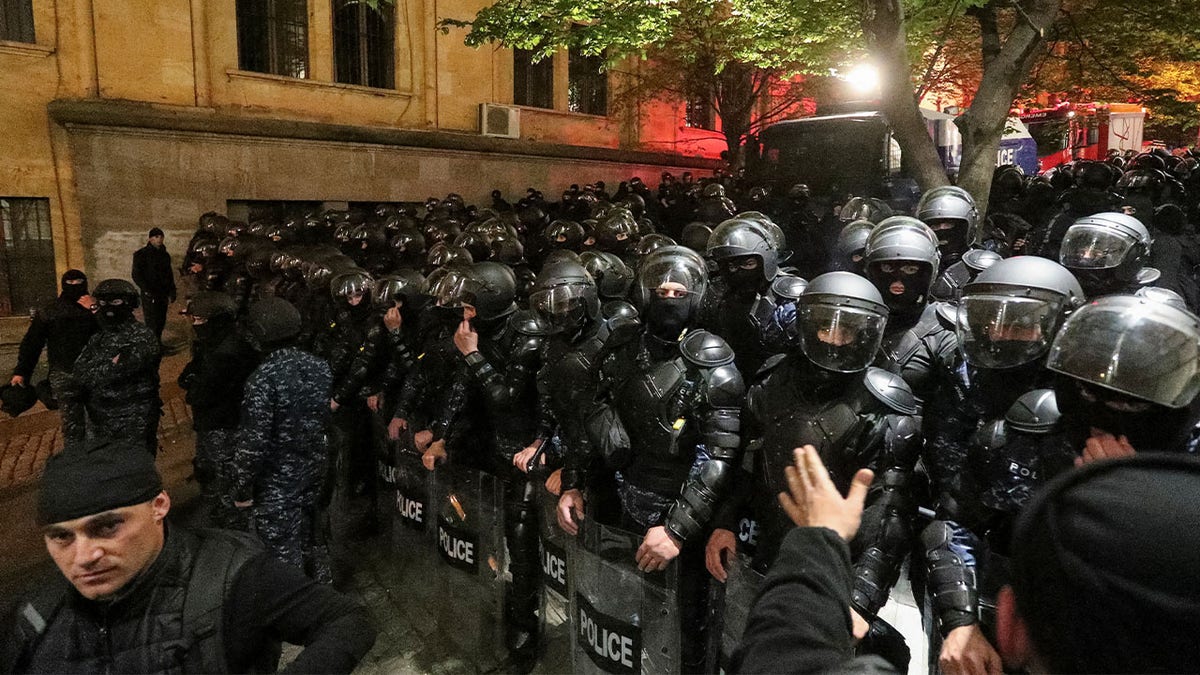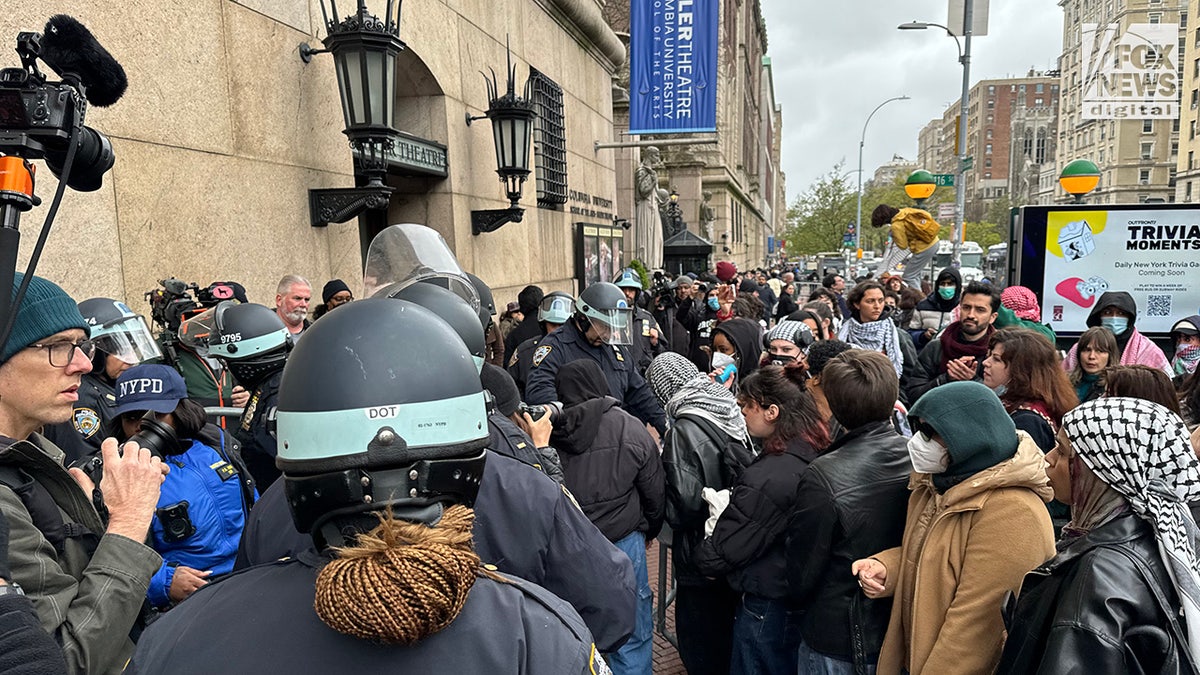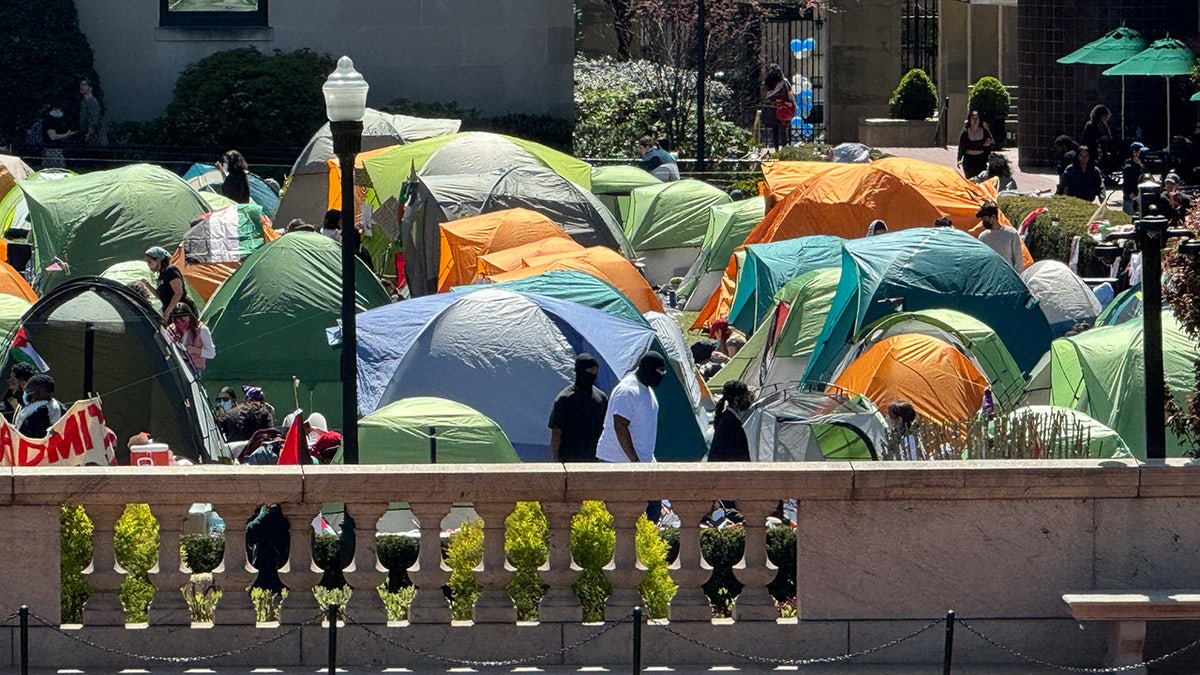The Supreme Court is set to consider a second abortion case on Wednesday, this time dealing with claims by a Republican-led state that the Biden administration is attempting to wield a 40-year-old federal law as an “abortion mandate.”
On the heels of a debate over the Federal Food and Drug Administration’s regulation of an abortion pill, the high court will consider whether the Emergency Medical Treatment and Labor Act (EMTALA) preempts the state of Idaho’s newly enacted Defense of Life Act – which makes it a crime for any medical provider to perform an abortion with exceptions for rape, incest and life of the mother.
The Justice Department argued that the state’s law does not go far enough to allow abortions in more medical emergency circumstances.
However, proponents of the state law say that the administration’s lawsuit against Idaho is attempting to use a federal statute as an “abortion mandate” to benefit the president ahead of the 2024 elections.
WHY TRUMP IS DEFERRING TO THE STATES, AFTER WEIGHING AN ABORTION BAN AT 15 WEEKS
A crowd outside the Supreme Court reacting to the Dobbs ruling in 2022. (Fox News Photo/Joshua Comins)
“Construing EMTALA as a federal abortion mandate raises grave questions under the major questions doctrine that affect both Congress and this Court,” Idaho argued in legal filings.
In an interview with Fox News Digital, Idaho Attorney General Raúl Labrador said, “The Supreme Court made it clear that it’s up to the states to decide what our laws should be and that it’s not for the federal government.”
“But Joe Biden and his administration decided to come straight and sue us in federal courts. We are excited to go before the Supreme Court to show that the state should be deciding these issues and not the federal government,” he said.
The DOJ said in its response to the high court that while Idaho’s law makes it a felony for a doctor to terminate a pregnancy unless doing so is “necessary” to prevent the patient’s “death,” that exception is “narrower” than EMTALA, which by its terms “protects patients not only from imminent death but also from emergencies that seriously threaten their health.”
However, Idaho accused the administration of “construing the spare phrase” in the federal law “as a blank slate to be filled with the Executive Branch’s preferred abortion policy collides with multiple statutory provisions guaranteeing emergency medical care for a pregnant woman and her unborn child.”
“It’s clear that the administration is just manipulating EMTALA and that both laws should be able to coexist,” John Bursch, senior litigator at civil rights firm Alliance Defending Freedom and co-counsel in the case, told Fox News Digital in an interview.
“If a woman’s life is in danger, Idaho’s Defense of Life Act makes it clear that the women should be treated and helped. Because in that instance, when the mom’s life is in danger, it’s not an abortion in Idaho or any of the other 49 states,” he said.
But the White House says that the 21 states enforcing abortion bans are causing “chaos and confusion.”
“These extreme state laws have caused chaos and confusion, and women are being denied the essential care they need. But these dangerous state laws do not change the responsibility that health care providers have to their patients in emergencies covered by the federal Emergency Medical Treatment and Labor Act,” White House spokesperson Kelly Scully told Fox News Digital.
“The Biden-Harris Administration has long been clear that federal law requires hospitals to offer health and life-saving care to patients in an emergency. The Administration remains focused on working with doctors, hospitals, and patients to make these federal requirements clear while the Department of Justice defends that understanding in the Supreme Court. No woman should be denied the care she needs,” she said.
The Center for Reproductive Rights also filed a lawsuit in September 2023, calling Idaho’s abortion ban “a six-week ban that has ‘vigilante’-style civil liability provisions.
The Center filed the suit on behalf of seven plaintiffs: four women who were denied medically necessary abortion care in their home state, two Idaho physicians who provide obstetrical care, and a professional membership organization consisting of Idaho physicians, medical residents and medical students.
PRO-LIFE CONSERVATIVES ARE ‘DISAPPOINTED’ IN TRUMP’S NEW ABORTION POLICY, BUT STICK BY HIM: ‘ONLY ONE OPTION’
Anti-abortion campaigners celebrate outside the US Supreme Court in Washington, D.C., on June 24, 2022. (OLIVIER DOULIERY/AFP via Getty Images)
EMTALA is a federal statute signed by then-President Reagan in 1986 after earning bipartisan congressional support, designed to prevent hospitals from turning away indigent patients who are in critical need of medical care and offer the same “stabilizing” care they would to a patient who could pay or is covered by insurance.
After the Dobbs decision in 2022, which overturned Roe v. Wade and left states to decide their own abortion limitations, Bursch said the Biden administration, for the first time in the law’s history, used it to impose an “abortion mandate.”
A district court sided with DOJ and ordered a preliminary injunction of the state’s law. The Ninth Circuit affirmed that decision, which Idaho then appealed to the Supreme Court. Oral arguments are set for April 24.
“What the Biden administration wants to do is take this law and turn it into an abortion enclave in emergency rooms,” Bursch said. “And to the point where even if a patient came in, and they said that they were in critical condition because of a mental health problem, like depression, or anxiety, that would give doctors a carte blanche ability to ignore laws like Idaho’s and take the life of the innocent child, and EMTALA doesn’t say anything like that.”
REPUBLICANS LARGELY QUIET AS DEMOCRATS HAMMER SCOTUS ABORTION PILL CHALLENGE
Supreme Court Justices posing for an official photo at the Supreme Court. (Photo by OLIVIER DOULIERY/AFP via Getty Images)
Bursch added that what he believes is “so ironic” is that following the Dobbs decision, President Biden himself said that he disagreed with the decision, but that he understood that states operating through the democratic process would get to decide what abortion laws would control each state.
“And it was only a matter of weeks later that he changed course and said, ‘oh no, the federal government is just going to impose this new requirement by reinterpreting EMTALA in a way that it’s never been interpreted in its nearly four-decade history.”
“It is subverting states’ rights. It’s pushing abortion on states that don’t want it, and it’s all blatantly illegal,” he said.
Stephen Billy, vice president of state affairs for SBA Pro-Life America, said the administration’s novel legal challenge to a state’s abortion law looks politically motivated ahead of the November elections amid Biden’s dwindling poll numbers.
“The Biden administration doesn’t feel like they have any other issue to run on, and it’s clear what they’re going to talk about and what they’re trying to run on. Whether abortion is going to be a campaign issue or not, the Biden administration is going to try to make it one,” he added.
IN ABORTION PILL ARGUMENTS, SUPREME COURT JUSTICES SEEM SKEPTICAL ABOUT FDA ACCOUNTABILITY EXPERTS SAY
Representative Nydia Velazquez, a Democrat from New York, left, Rep. Ilhan Omar, a Democrat from Minnesota, and Representative Jackie Speier, a Democrat from California, march toward the U.S. Supreme Court during a protest of the court overturning Roe v. Wade in Washington, D.C., on Tuesday, July 19, 2022. (Photographer: Al Drago/Bloomberg via Getty Images)
Billy cited the Women’s Health Protection Act, which Democrats in Congress attempted to pass last year. It would have legalized virtually limitless abortion nationwide, but ultimately failed.
“Congress’s opposition to that comes from the will of the people who sent the elected representatives to D.C., and they have very little national support when you look at the polling for the extreme position of the Women’s Health Protection Act,” said Billy.
CLICK HERE TO GET THE FOX NEWS APP
“So Biden turned to executive action, ignoring the text of laws and just trying to use executive fiat to expand abortion on demand wherever you can, and however you can. And EMTALA is just one example of that,” he said.
Billy added that he believes the Biden administration is using “fear and scare tactics” around the issue.
“The entire case is basically a claim that women can’t get medical care,” he said, but noted that every “pro-life state” allows for a mother’s health exception and allows doctors to act when there’s a medical emergency.
“They are trying to use that fear to drive a political agenda and to save their campaign because they don’t really have anything else to run on,” he said.
The Justice Department declined to comment on pending litigation.
Brianna Herlihy is a politics writer for Fox News Digital.

